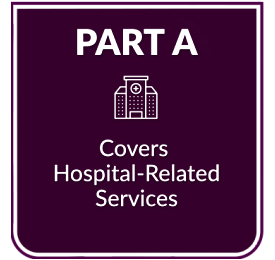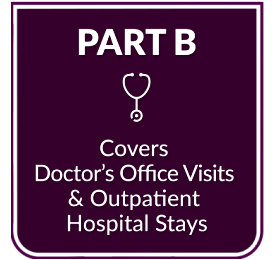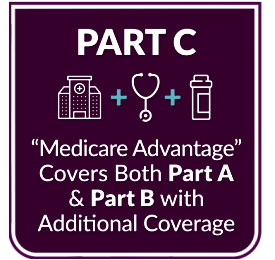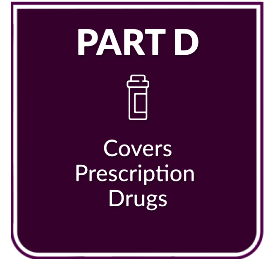Part D - Prescription Drug Plans
Part D Prescription Drug Plans are CMS-approved plans offered through private health insurance companies. These plans are either found as a Stand-Alone Prescription Drug Plan or as a Medicare Advantage Prescription Drug Plan (MAPD). Part D Prescription Drug plans cover brand name and generic medications supplied by a pharmacy. Coverage varies by plan, and each plan has a formulary. A formulary is a list of the drugs covered by that plan.
The Costs Associated With Part D:
- The Part D Monthly Plan Premium.
- Out-of-Pocket Costs Like Deductibles & Co-Pays Outlined In The Plan. Along With The CMS Part D Coverage Stages.
- Any Late Penalty’s Incurred From Not Obtaining Part D Coverage When A Person Is First Eligible.
Understanding CMS Medicare Part D Coverage Stages:
- Annual Deductible: At this stage, prescriptions are paid by the beneficiary until the deductible is met. Not all Part D Plans have a deductible. If the plan does not have a deductible, the coverage starts with the first filled prescription.
- Initial Coverage: At this stage, the beneficiary pays a co-pay, and the plan pays the rest. This stage continues until the *Total Drug Costs reach the amount set by CMS for that calendar year.
- Coverage Gap (Donut Hole): In this stage, after the *Total Drug Costs reach the amount set by CMS for that calendar year, the co-pay becomes 25% of the costs for brand-name and generic drugs. This stage continues until the *Total Out-of-Pocket Costs reach the amount set by CMS for that calendar year.
- Catastrophic Coverage: In this stage, after the *Total Out-of-Pocket Costs reach the amount set by CMS, only a small copay or coinsurance is owed. This stage continues for the rest of the calendar year.






